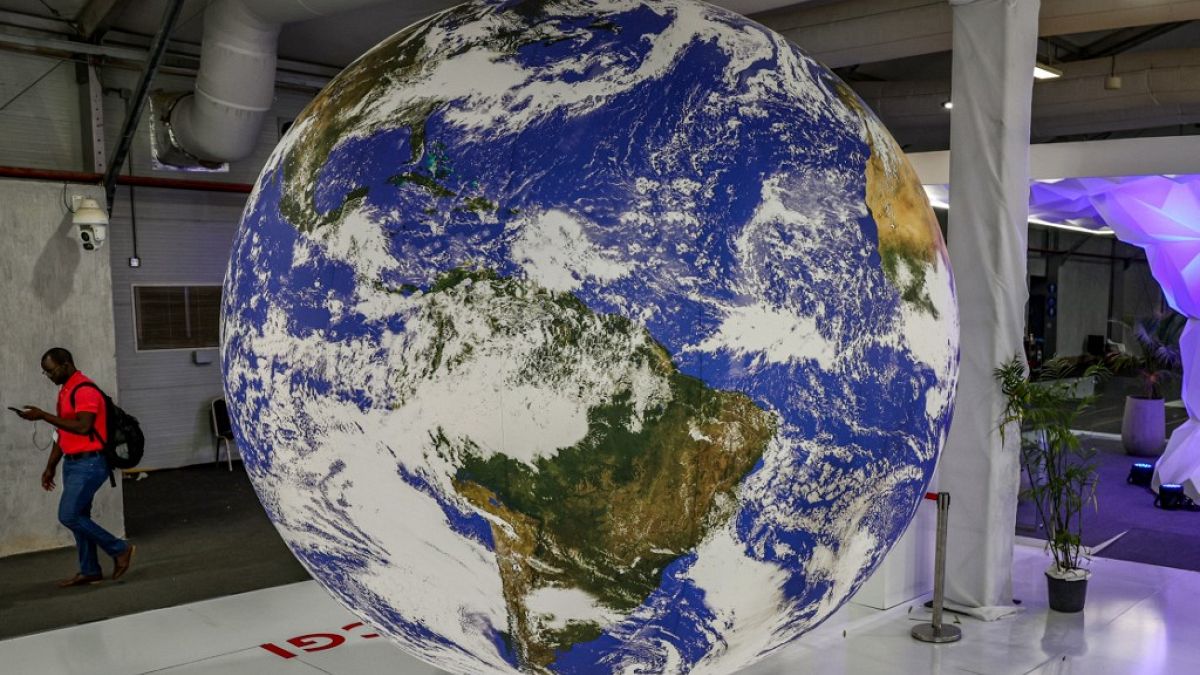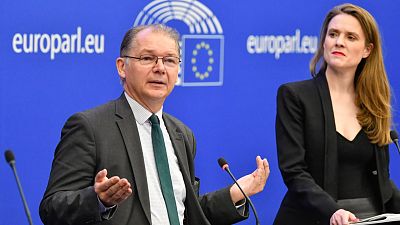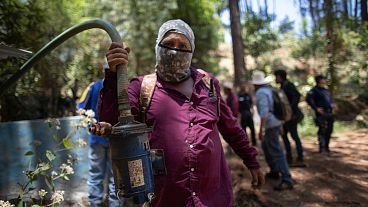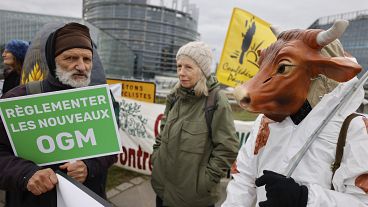But others hailed the conference for setting up a loss and damage fund.
Experts and campaigners have slammed COP27 as a failure, though others praised the new commitments around damages and losses.
The summit concluded on Sunday with a hotly contested text on aiding developing countries hit by climate change, but did not set new targets for cutting back on fossil fuels.
“Without any binding commitments to rapidly and immediately reduce greenhouse gases, the world stands no chance to deliver on the 1.5°C limit,” wrote climate activist Greta Thunberg on Twitter yesterday.
Preventing world temperatures from rising above 1.5°C is needed to stave off the most severe impacts of climate change, which will cause catastrophic harm to human life and the environment.
Speaking after the conference in Egypt, Mary Robinson, chair of the Elders Group of former world leaders and ex-UN climate envoy, urged governments to do more.
“The world remains on the brink of climate catastrophe,” she said. “We are on the cusp of a clean energy world, but only if G20 leaders live up to their responsibilities, keep their word and strengthen their will.”
“The onus is on them,” she added.
The final declaration adopted at COP - one of the longest in its 27-year history - called for a “rapid” reduction in emissions. But it lacked new goals on greenhouse gas emissions, unlike last year’s COP26 in Glasgow.
‘We fulfilled our mission’
Others struck a more optimistic tone.
Host Egypt praised the outcome of the talks, with the country’s Foreign Minister Sameh Choukri saying “we finally fulfilled our mission”.
COP27 resulted in the adoption of a resolution described as “historic” by its promoters on compensating for the damage inflicted on poorer countries by climate change.
The text - signed by nearly 200 countries - paves the way for the creation of a specific fund on rebuilding physical and social infrastructure after extreme weather events.
But there were no details on who will fund it, how much they will give and on what terms.
UN Secretary-General Antonio Guterres said COP had taken an “important step”.
“I welcome the decision to establish a loss and damage fund and to operationalize it in the coming period,” he said in a statement on Sunday.
“Clearly this will not be enough, but it is a much-needed political signal to rebuild broken trust.”
Issues around "losses and damages" have repeatedly been a flashpoint at past COP conferences.
Poorer countries complain they are most exposed to the environmental impacts of climate change, though are not responsible for the bulk of emissions.
‘COPs have become obsolete’
Environmental activists have not been enthusiastic about the conference’s outcomes.
“COP27 will be remembered as the year fossil fuels hijacked the UN climate talks,” tweeted climate campaigner Assaad Razzouk on Sunday.
“Attendees connected to the oil and gas industry were everywhere, turning COP27 into a fossil fuel fair. The COPs have become obsolete”.
“Climate action is everywhere, just not at the UN climate talks,” he added.
A controversial COP from day one
Hosted in the seaside resort of Sharm el-Sheikh in Egypt, COP27 was marred by multiple controversies from day one.
These included the alleged crackdown on environmental protestors, organisational issues, its sponsorship by Coca-cola, and the mass attendance of fossil fuel lobbyists.
Campaigners from the African continent complained they were being watched by the Egyptian authorities and sidelined at COP, prevented from accessing the summit.
This was the first COP on the continent.
George Monbiot, a UK climate activist, questioned the very idea of COP itself after the talks.
“Summit after the environmental summit has failed even to begin the action that's needed. At what point do we conclude that the process is part of the problem?”



